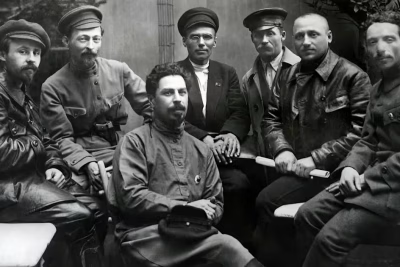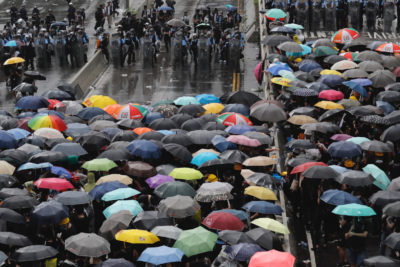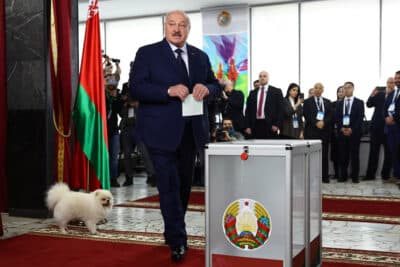
Belarus Economic Crisis: How Sanctions and Mismanagement Deepen the Repression
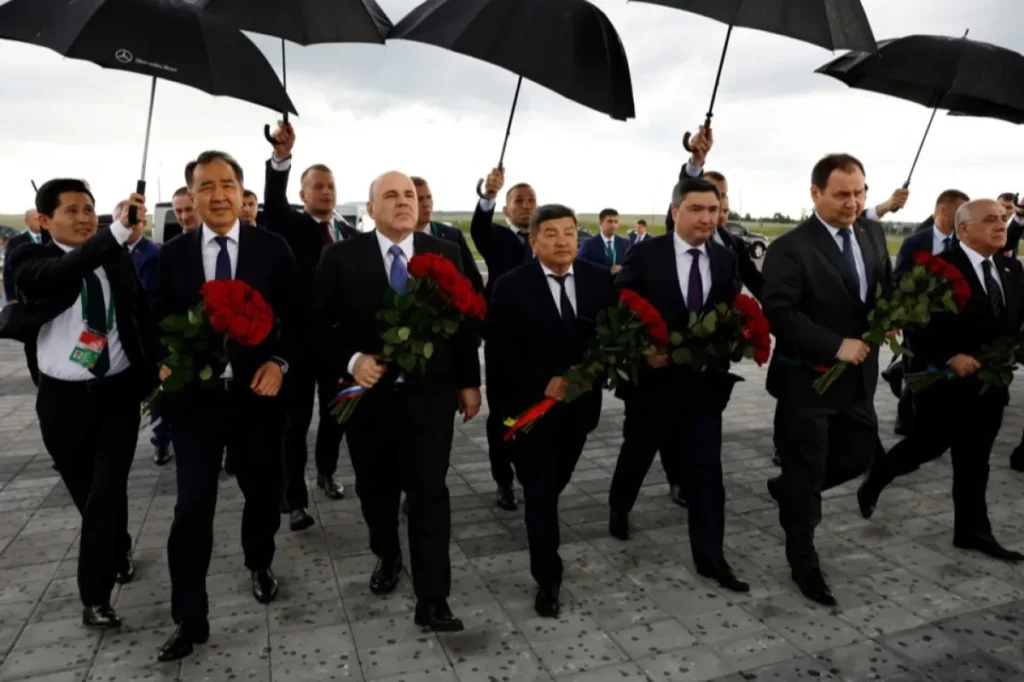
In 2025, Belarus economic crisis has become a reality, since the collapse of the Soviet Union. Inflation is high, foreign investment has dried up, and ordinary citizens are struggling to afford basic goods. Yet, this crisis is not a random misfortune—it is the result of international sanctions and years of economic mismanagement by the Lukashenko regime.
Far from weakening the authoritarian grip, the economic downturn has been weaponised to tighten control over society, limiting dissent and pushing Belarus further into political isolation.
The Roots of the Belarus Economic Crisis
The seeds of today’s Belarus economic crisis were planted long before sanctions hit. For decades, the economy relied heavily on subsidised energy from Russia, state-controlled industries, and limited market reforms. This dependency meant that any external shock—political or economic—could destabilise the country.
The 2020 protests and subsequent government crackdown marked a turning point. Foreign investors fled, local entrepreneurs faced increasing restrictions, and access to Western markets began to shrink. By 2023, Belarus was already in recession, with GDP contracting for two consecutive years.
Impact of International Sanctions on Belarus
International sanctions have targeted the regime’s main sources of revenue, including:
- Petroleum products – Restrictions on the export of refined oil have cut off one of Belarus’s most profitable industries.
- Potash fertiliser – A major export product, now banned in key Western markets.
- Banking and finance – Belarusian banks have been excluded from SWIFT, limiting international transactions.
While the goal of sanctions is to pressure the regime into political reforms, the immediate burden has fallen on ordinary Belarusians. Prices for imported goods have soared, salaries have stagnated, and small businesses face collapse due to supply chain disruptions.
How Economic Mismanagement Fuels the Problem
Sanctions alone do not explain the depth of the Belarus economic crisis. Years of economic mismanagement have left the country unprepared to adapt. Lukashenko’s government continues to prioritise loyalty over competence, appointing political allies to key economic positions.
Some of the most damaging policies include:
- Over-reliance on state-owned enterprises with outdated infrastructure.
- Suppression of private sector growth through excessive bureaucracy and political interference.
- Currency manipulation that erodes public trust and fuels black market activity.
Instead of reforming the economy, the regime has increased dependence on Russian loans and trade, reducing sovereignty and leaving Belarus vulnerable to Moscow’s political demands.
The crisis is not just about numbers—it has a human cost. Across Belarus, families are struggling with:
- Rising unemployment as factories close or scale back operations.
- Mass migration of skilled workers to Poland, Lithuania, and other EU countries.
- Declining healthcare as the government cuts budgets and imports for medical equipment become scarce.
These hardships have created a silent wave of discontent. However, fear of retaliation prevents many from speaking out. For the regime, this economic pressure is not just a byproduct—it is a tool.
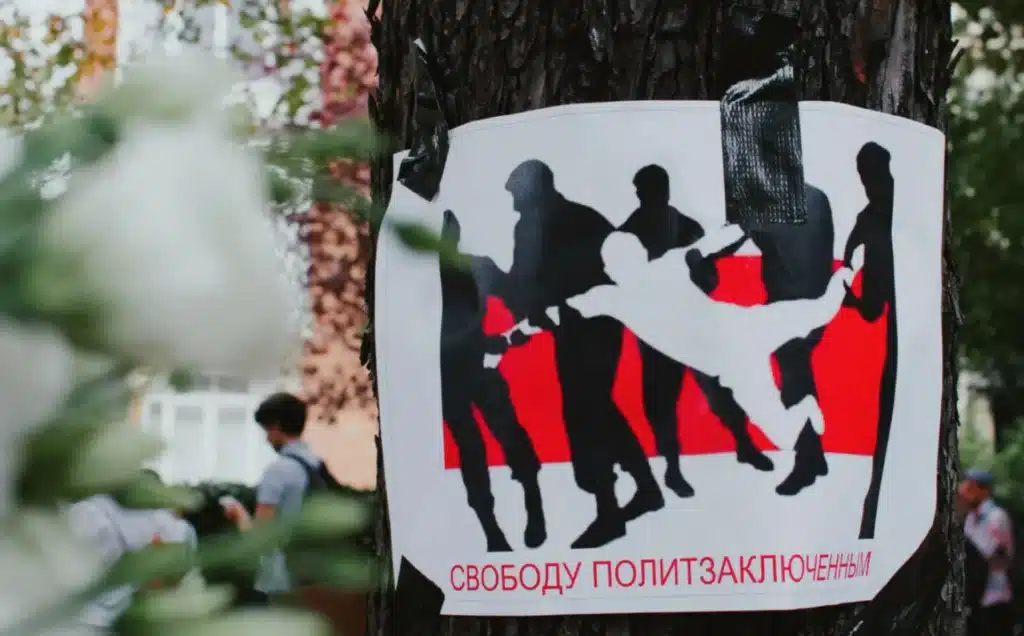
Economic Crisis as a Tool of Repression
The Lukashenko government has turned the Belarus economic crisis into a mechanism for political control. Those who oppose the government often find themselves facing economic punishment—loss of employment, fines, or restricted access to state resources.
For example, workers who participate in strikes can be blacklisted from public sector jobs. Independent journalists and activists are denied bank loans or forced into legal disputes that drain their resources.
By keeping the population economically insecure, the regime reduces the capacity for organised resistance.
What’s Next for Belarus’s Economy?
Looking ahead, there are three possible scenarios:
- Continued decline under sanctions and mismanagement – The most likely path unless there is political change.
- Partial relief through Russian support – Moscow could provide more financial aid, but this would deepen Belarus’s dependency and limit its political autonomy.
- Gradual stabilisation via reforms – Unlikely under the current regime, but possible in a post-Lukashenko era with international reintegration.
For ordinary Belarusians, survival strategies increasingly involve working in the shadow economy, migrating abroad, or relying on diaspora support.
Conclusion
The Belarus economic crisis of 2025 is the result of both external sanctions and internal mismanagement. While the West hopes sanctions will encourage political change, the regime has instead adapted by shifting the burden onto citizens and weaponising economic hardship to suppress dissent.
Addressing the crisis will require more than lifting sanctions—it will require deep political reforms, genuine economic liberalisation, and a restoration of trust between the state and its people.
FAQs about the Belarus Economic Crisis
1. What caused the Belarus economic crisis?
A combination of international sanctions, structural weaknesses, and decades of economic mismanagement.
2. How do sanctions affect ordinary citizens?
They raise prices, reduce job opportunities, and limit access to imported goods, while the regime maintains its power base.
3. Can Russia save the Belarusian economy?
Russia can provide short-term relief through loans and trade, but this deepens dependency and limits Belarus’s sovereignty.
4. Is the crisis leading to more political instability?
While discontent is growing, fear of repression prevents large-scale protests similar to those in 2020.
5. What can the international community do?
Support independent Belarusian media, assist civil society, and target sanctions more precisely to avoid harming ordinary citizens.



